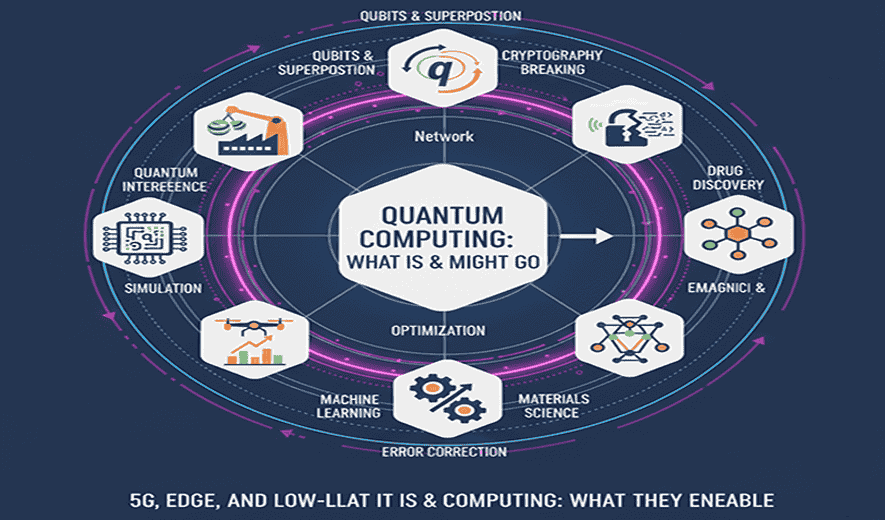
Quantum Computing: What It Is & Where It Might Go
Quantum computing uses quantum mechanics to solve problems that are intractable for classical computers. It fundamentally differs from classical computing by utilizing quantum bits, or qubits, which can exist in multiple states at once, rather than being restricted to a binary (0 or 1) state. This allows quantum computers to process information in a massively parallel way, providing a potential exponential speed-up for certain complex calculations.
Here are a few different perspectives on quantum computing and its future.
An illustrative perspective
A good analogy for quantum computing involves a maze and how computers solve it.
- A classical computer's approach: It tries every possible path, one at a time, until it finds the exit. Even with a powerful supercomputer, this is a linear, brute-force process.
- A quantum computer's approach: It uses quantum principles like superposition and interference to have a "bird's-eye view" of the maze. It can evaluate all possible paths simultaneously, canceling out incorrect routes and amplifying the correct one. This allows it to find the solution far more efficiently for certain problems.
A physics-centric perspective
Quantum mechanics is the underlying "operating system" that governs the behavior of the universe at its smallest scales.
- Qubits and superposition: Instead of a classical bit's two states (0 or 1), a qubit is a combination of both states at the same time until it is measured. This strange property, called superposition, provides quantum computers with their inherent computational power.
- Entanglement: When multiple qubits become entangled, their states are linked in such a way that the state of one instantly influences the state of others, regardless of the distance between them. This allows a quantum computer to perform highly complex calculations much faster by sharing information across a system.
- Quantum interference: A quantum computer can use interference to filter through all the possible computational paths. It's programmed to maximize the probability of measuring the correct answer by making correct paths constructively interfere, while making incorrect paths destructively interfere and cancel each other out.
An application-focused perspective
The true power of quantum computing lies not in being universally faster, but in tackling a specific set of complex problems. Its future depends on advancing into new applications that are impossible for classical computers.
Potential applications of quantum computing:
- Quantum simulation: One of the most promising areas is using quantum computers to model other quantum systems. This will enable breakthroughs in chemistry and material science by accurately simulating molecular interactions, which could accelerate drug discovery, catalyst design, and the creation of new materials.
- Artificial intelligence: Quantum machine learning algorithms could process large, high-dimensional datasets more efficiently, potentially speeding up AI model training. This could accelerate the development of autonomous vehicles, enhance financial fraud detection, and improve predictive analytics.
- Cryptography and security: Quantum computers pose a threat to today's encryption methods, particularly public-key schemes that rely on the difficulty of factoring large numbers. As a result, research is heavily focused on developing "post-quantum cryptography" standards that are resistant to quantum attacks.
- Optimization: The technology can be used to solve complex optimization problems across various industries. Examples include optimizing logistics and supply chains, finding efficient routes for vehicle fleets, and enhancing financial portfolio management.
